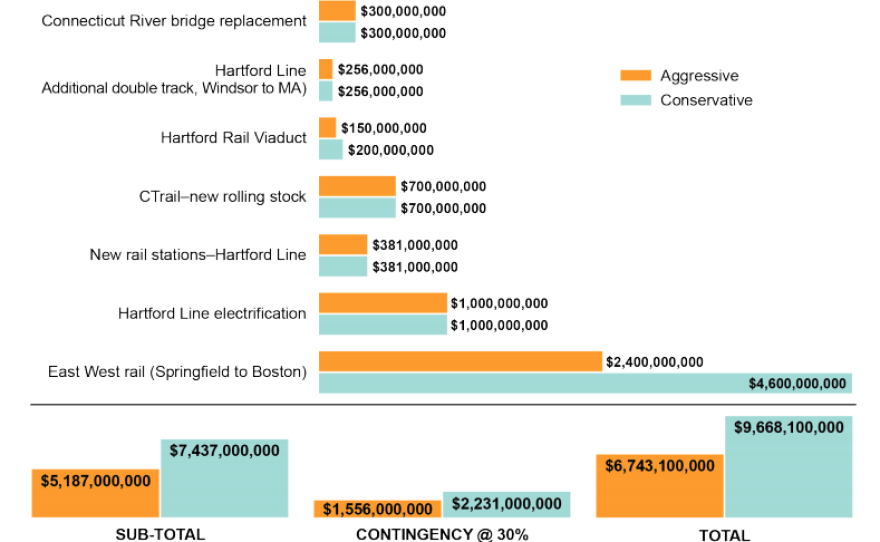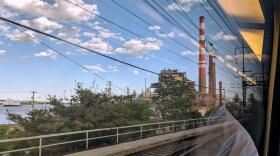U.S. Reps. Richard Neal of Springfield and John Larson of East Hartford made the case Thursday for an investment of between $6.7 billion and $9.7 billion in the infrastructure needed for regional rail service that could link Boston, Worcester, Springfield, Hartford and New Haven to New York City and beyond.
The Interstate 91 corridor congressmen are touting the findings of a new report (PDF) commissioned by the Capitol Region Council of Governments and Pioneer Valley Planning Commission to assess the business case for a major rail project in each state.
If advanced together, the report said the long-discussed east-west rail proposal in Massachusetts and the completion of the bi-state Hartford Line, mostly in Connecticut, would create an important regional rail network.
"Together, the East-West Line and the completed Hartford Line would reconstitute a 21st century version of the old Inland Route — regular train service from Boston to New York via Worcester, Springfield, Hartford, and New Haven — which the region has lacked for decades," the report said. "It would create a regional network of great versatility and economic potential, combining intercity service all along the corridor with high-frequency, transit-like service in the Hartford-Springfield core."
The Metro Hartford-Springfield region includes Hampden and Hampshire counties in Massachusetts and Hartford County in Connecticut, accounting for about 1.6 million people and a regional GDP of $120 billion, the organizations said.
Since 1990, job growth in the area has consistently lagged the rest of the Northeast Corridor served by Amtrak and other rail providers to the tune of 130,000 jobs not created, the groups said.
The organizations said the two-part rail improvement plan would attract 20,000 to 40,000 professional services jobs to the region, support "extensive" transit-oriented development and add $47 billion to $84 billion in new regional GDP over 30 years. State and local governments in Massachusetts and Connecticut could expect between $3.8 billion and $5.4 billion in direct fiscal benefits over 30 years, the report estimated.
Rep. Stephen Lynch said about a month ago that between President Joe Biden's $2.3 trillion infrastructure package and a Congressional budget process that now allows lawmakers to fund "community projects" — essentially a new name and process for earmarks — projects like east-west rail could soon get some attention from D.C.
"We are at that moment now in the New England delegation where some of these big projects are being primed," Lynch said in late March when asked if east-west rail was the top priority for the state's congressional delegation.









